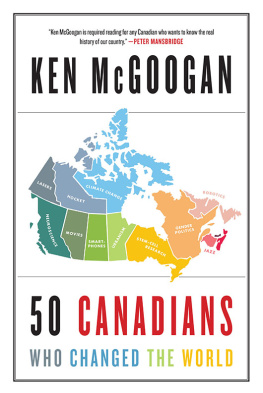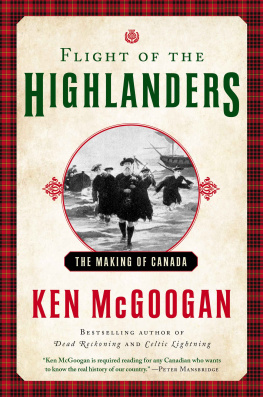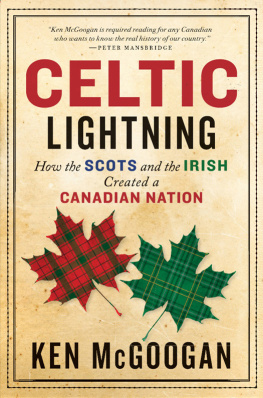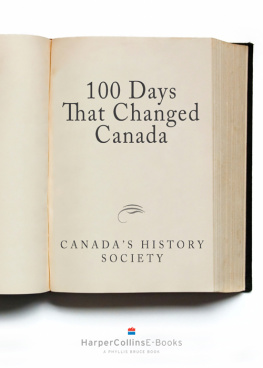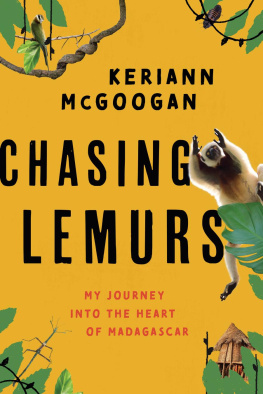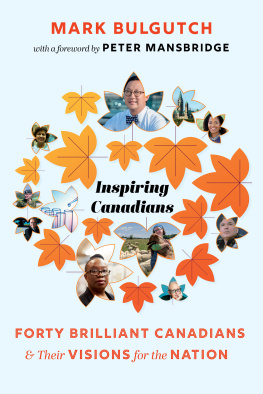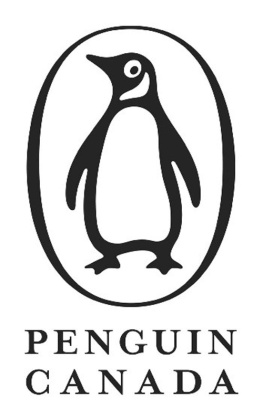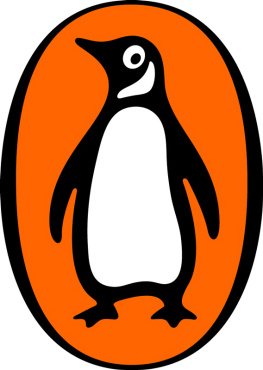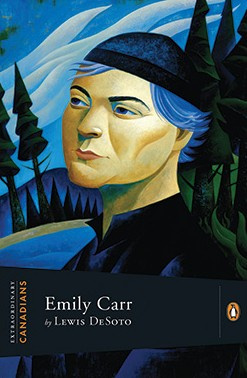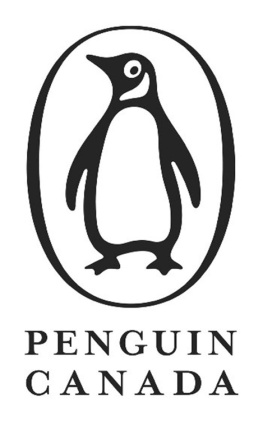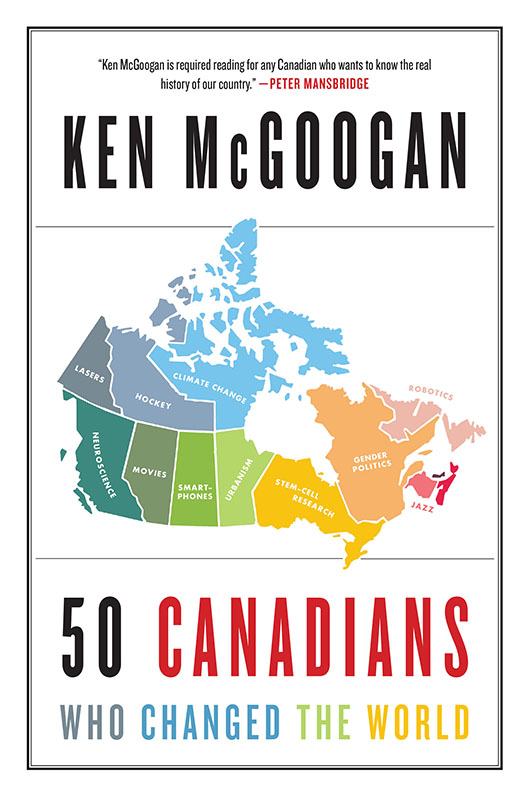I n the beginning, the Dominion Institute conducted the mother of all Canadian surveys. The poll proved notable not for its sample size or methodology, but for what it revealed: our ignorance. The institute asked 1,000 Canadians to identify iconic figures from photographs. Almost 90 percent could name Terry Fox and Cline Dion, and 75 percent knew Wayne Gretzky and Pierre Elliott Trudeau. But from there the scores plummeted. The year was 2009. Less than half the respondents recognized Michalle Jean, then serving as Canadas Governor General. And only 19 percent could name Tommy Douglas, who, five years before, had been voted the greatest-ever Canadian.
Given a chance, most Canadians could probably identify Margaret Atwood, Farley Mowat, and David Suzuki. But judging from that mother of all surveys, few would be able to name the small-town busker who reinvented the circus, the aspiring comic-book artist who transformed Hollywood movies, or the convent school girl, child of a broken marriage, who ended up bringing war criminals to justice. And what of the militant humanitarian who leads the fight against AIDS, the feminist tackling the global water crisis, or the electrical engineer who sparked a communications revolution?
All of these transformative figures were born in the twentieth century. They have changed or are changing the world. In recent years, our citizens have led United Nations programs and commissions, spearheaded research into life on other planets, and turned up on lists of the worlds most influential people. Canadians have written hundreds of books that have reached millions of people in scores of languages. We have won Booker Prizes, Grammy Awards, Oscars, literally hundreds of international awards for everything from architecture to human rights. The typical Canadian responds, Well, if these people are great, how come we know nothing about them?
Some say its because our schools dont teach Canadian history. That is part of the problem, certainly. But the vast majority of the world-beaters in this book are alive today. They are not historical but contemporary figures. Why dont we know these people and what they have accomplished?
Three reasons spring to mind. First, we live in denial. The late pianist Oscar Peterson, who turns up later in this book, put it this way: How can he play any good? He comes from here! Hes a Canadian! Second, we shrink from blowing our own horns. Fiction writer Alice Munro, who also appears in 50 Canadians, recalls being taught never to call attention to herself. She titled one of her books Who Do You Think You Are? Third, we revel in self-deprecation. When we fill in the blanks, we remain as Canadian as possible under the circumstances. We love Will Fergusons title: Why I Hate Canadians. We laugh at ourselves to ensure that nobody beats us to it.
Denial, inhibition, self-deprecation. Together, they betray our national inferiority complex, a condition fostered by both our colonial past and our American present. As a political entity, Canada sprang from France and Great Britain, which boast written histories extending back over centuries. Looking at that, Canadians feel like toddlers in a world of adults. At the same time, we live next door to the worlds only superpower, a Godzilla nation with ten times our population and a commensurate ability to project a national narrative. Pierre Elliott Trudeau likened Canada to a mouse that sleeps with an elephant: No matter how friendly and even-tempered is the beast, if I can call it that, one is affected by every twitch and grunt. We feel small. We feel marginal. We apologize and poke fun at ourselves.
A decade ago, in While Canada Slept: How We Lost Our Place in the World, Andrew Cohen wrote that while once Canada punched above its weight internationally, it no longer does so. The country has cut spending on humanitarian aid and global intelligence gathering, while conducting pinch-penny diplomacy and foreign policy on the cheap. Canada is trading on a reputation built two generations ago, he writesa reputation we no longer deserve.
If we compare Canada with other countries, nation to nation, state to state, then Cohen has a case. But what if we look at individuals? As soon as we turn from the state to the private citizen, we discover a universe filled with Canadian world-beaters. Judging from the evidence laid out in this book, Canadians are changing the world in far greater numbers than we have any right to expect. As individuals, we are still punching above our weight.
Why should this be so? The answer is Canadian pluralism. As I wrote in How the Scots Invented Canada, ours is a kaleidoscopic nation. Here we find French Canadians, Scottish Canadians, Chinese Canadians, Jamaican Canadians, Polish Canadians, Irish Canadians, Vietnamese Canadians, the list goes on. Here, too, we find myriad Aboriginal peoples: Inuit, Mohawk, Mikmaq, Cree, Dene, Blackfoot, Haida. Cutting across these ethnicities, we discover regional and local identities: Newfoundlanders, Atlantic Canadians, Qubcois, Torontonians, Manitobans, Albertans, British Columbians.
Most developed countries tolerate plural identities. But what they struggle to accommodate, Canada embraces and proclaims. This is partly the result of necessity: ours is a country of minorities. But it derives also from historical timing. The original thirteen colonies of the United States of America adopted a constitution in 1787. Inevitably, that document reflected eighteenth-century ideas about the nation state: one nation, one state, one national identity. As a result, the United States became proudly one and indivisible, and it fought a civil war to stay that way. Citizens of the United States have a single, overriding identity: they are Americans.
Canada, by comparison, did not even begin to emerge as a state until late in the nineteenth century. The country reached a political milestone in 1867 with Confederation. But even then Canada remained subject to the British North America Act, a document that Britain could repeal at any time. Only in 1982, under Pierre Elliott Trudeau, did this country gain control of its own constitution. By then, Canada was too complex to fit into an eighteenth-century constitutional mould. Trudeau recognized that the country had become pluralistic: regional, multicultural, multiracial, multinational.
He realized that, as a pluralistic state, Canada could become a brilliant prototype for the civilization of tomorrow. He convinced Canadians to reject the ethnocentric model (one nation, one state) championed by Qubcois nationalistsand adopted in the 1700s by Americansand recognize that freedom is most secure when two or more nations coexist within a single state. This pluralistic vision, rendered into reality by the Canadian Charter of Rights and Freedoms, makes Canada unique among developed nations. That reality means individuals have room to grow, no matter their roots, no matter their complexities. It explains why so many Canadians have changed the world.
It also explains why, instead of arguing ideas, I decided to focus on individuals. That, I reasoned, is where the stories are. I quickly discovered a multitude of extraordinary individualsfar too many. And so I adopted two basic criteria. First, because I hoped to paint a portrait of contemporary, cutting-edge Canada, I confined my selections to Canadians born in the twentieth century. This meant excluding remarkable figures from an earlier era, but opened up space for those changing the world today. Second, I wanted to focus on Canadians who have made a difference globally. This ruled out people who have worked miracles here at home but have had little impact in the great wide world.

